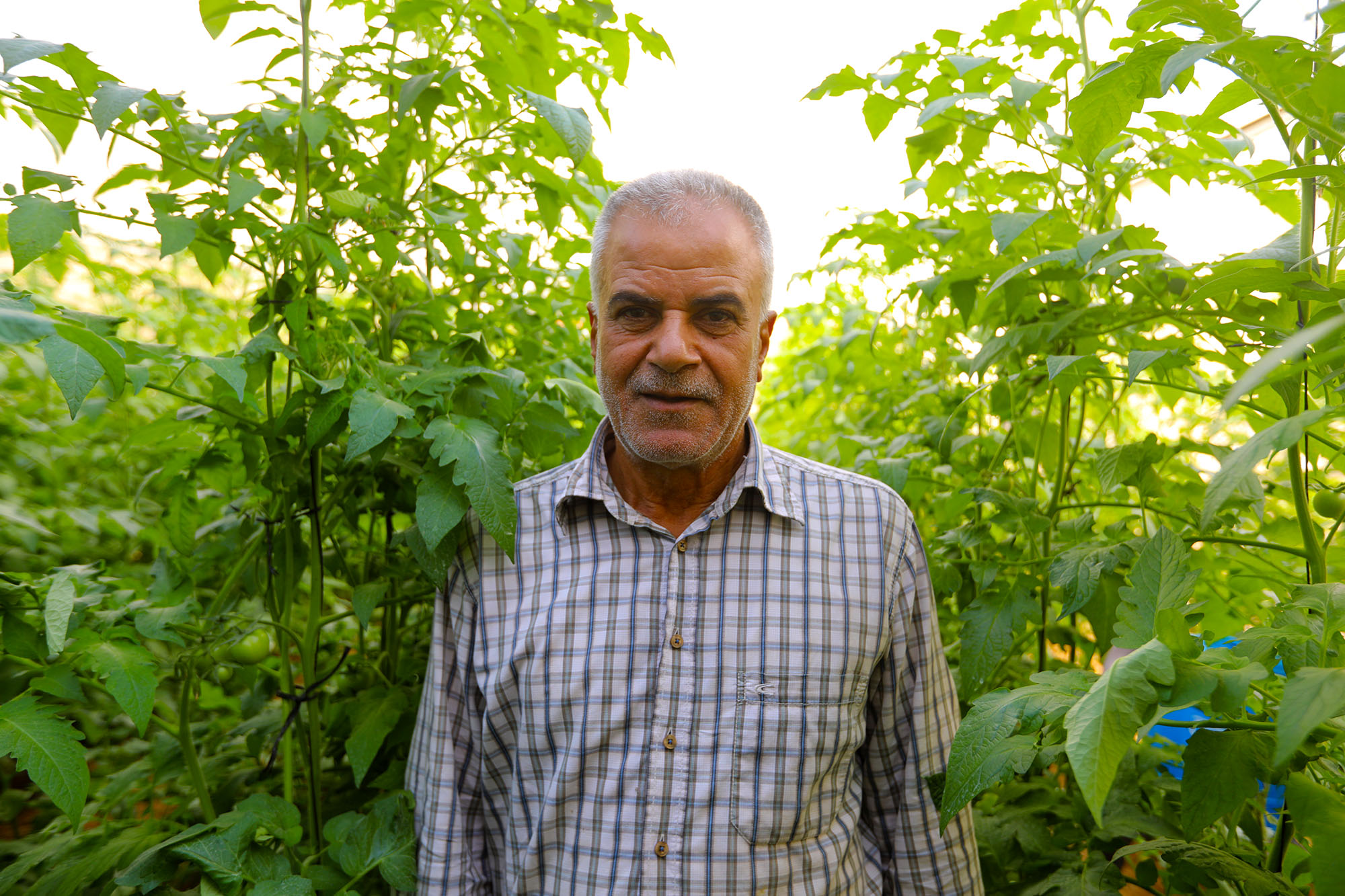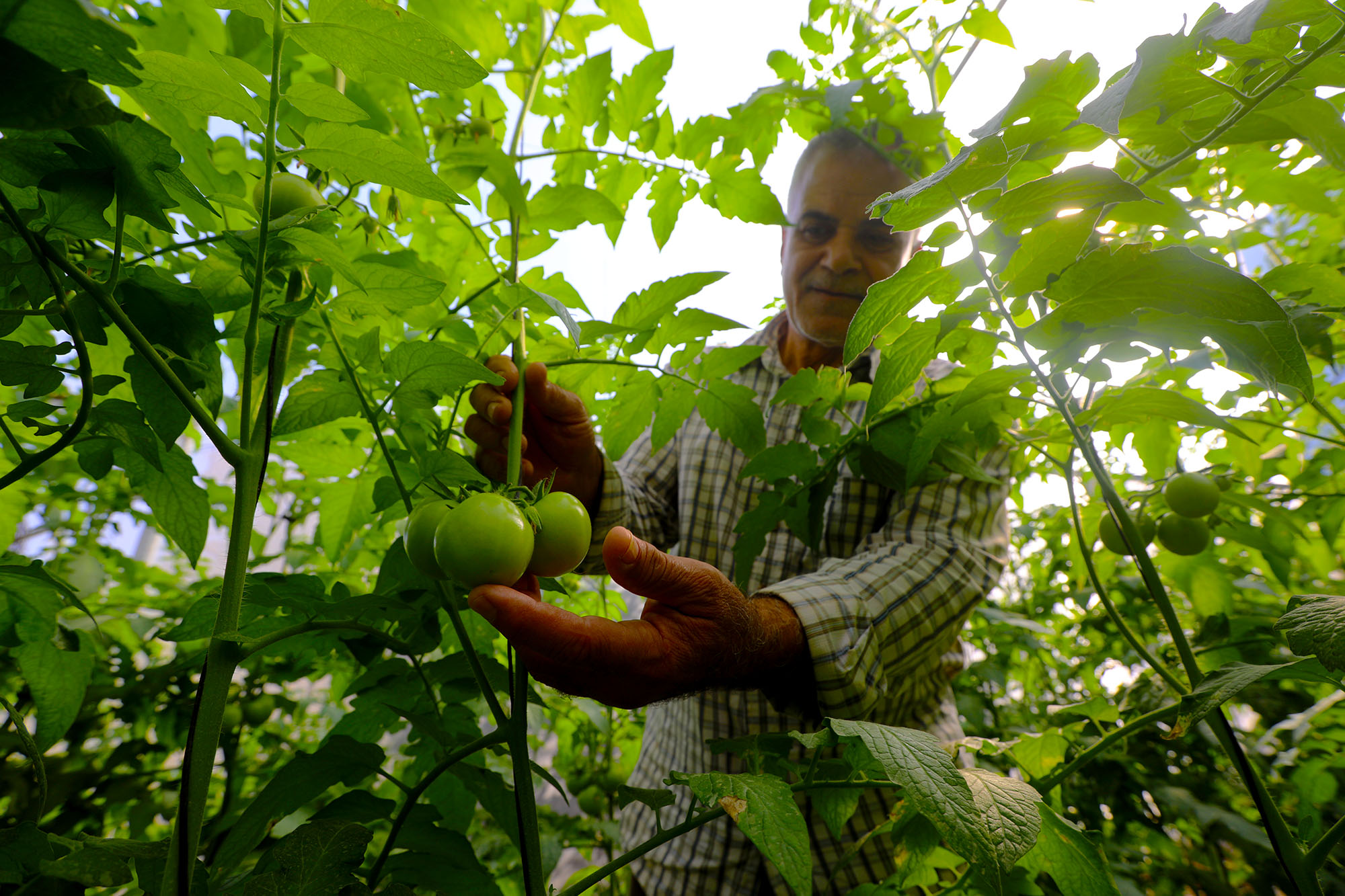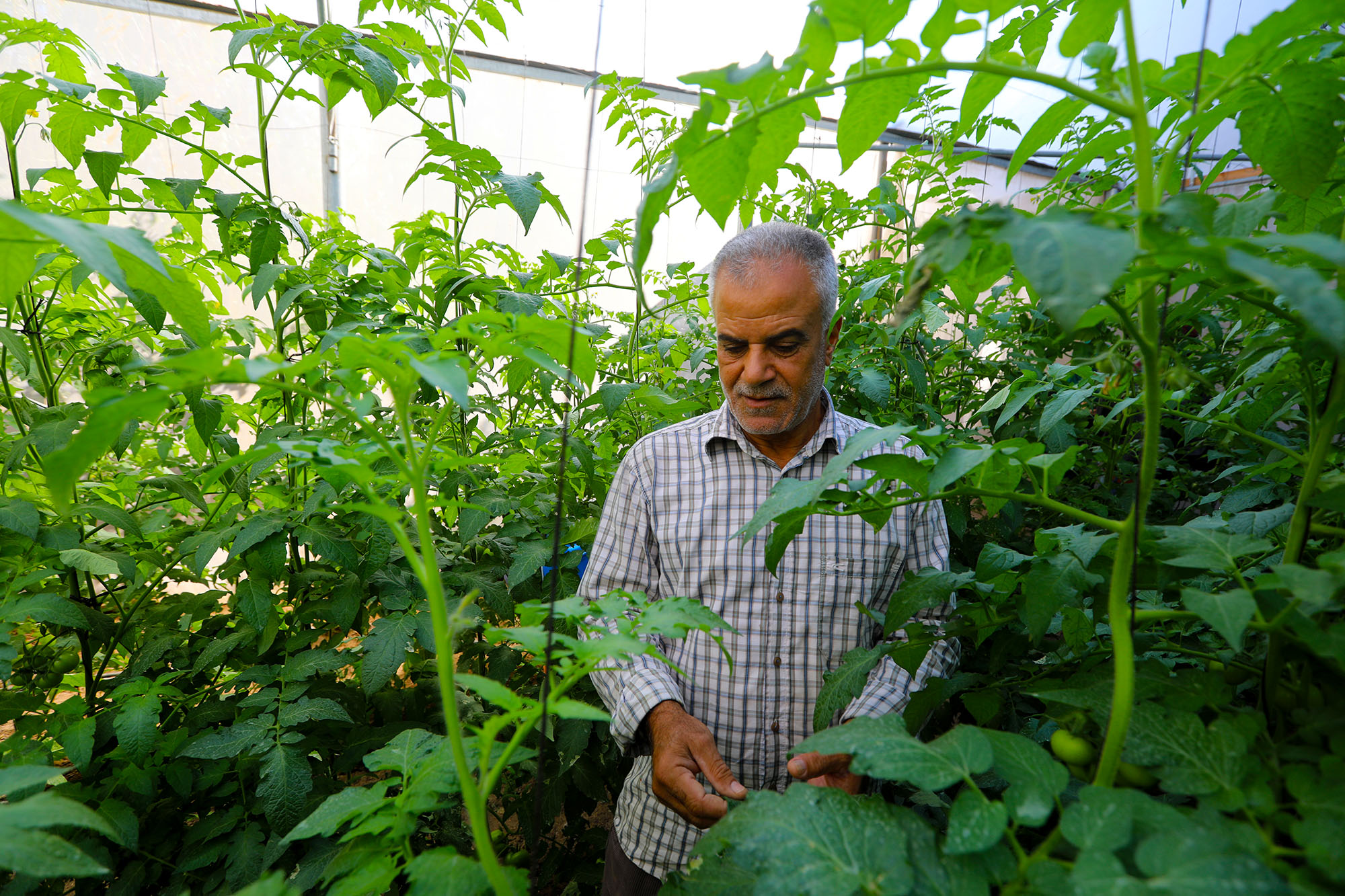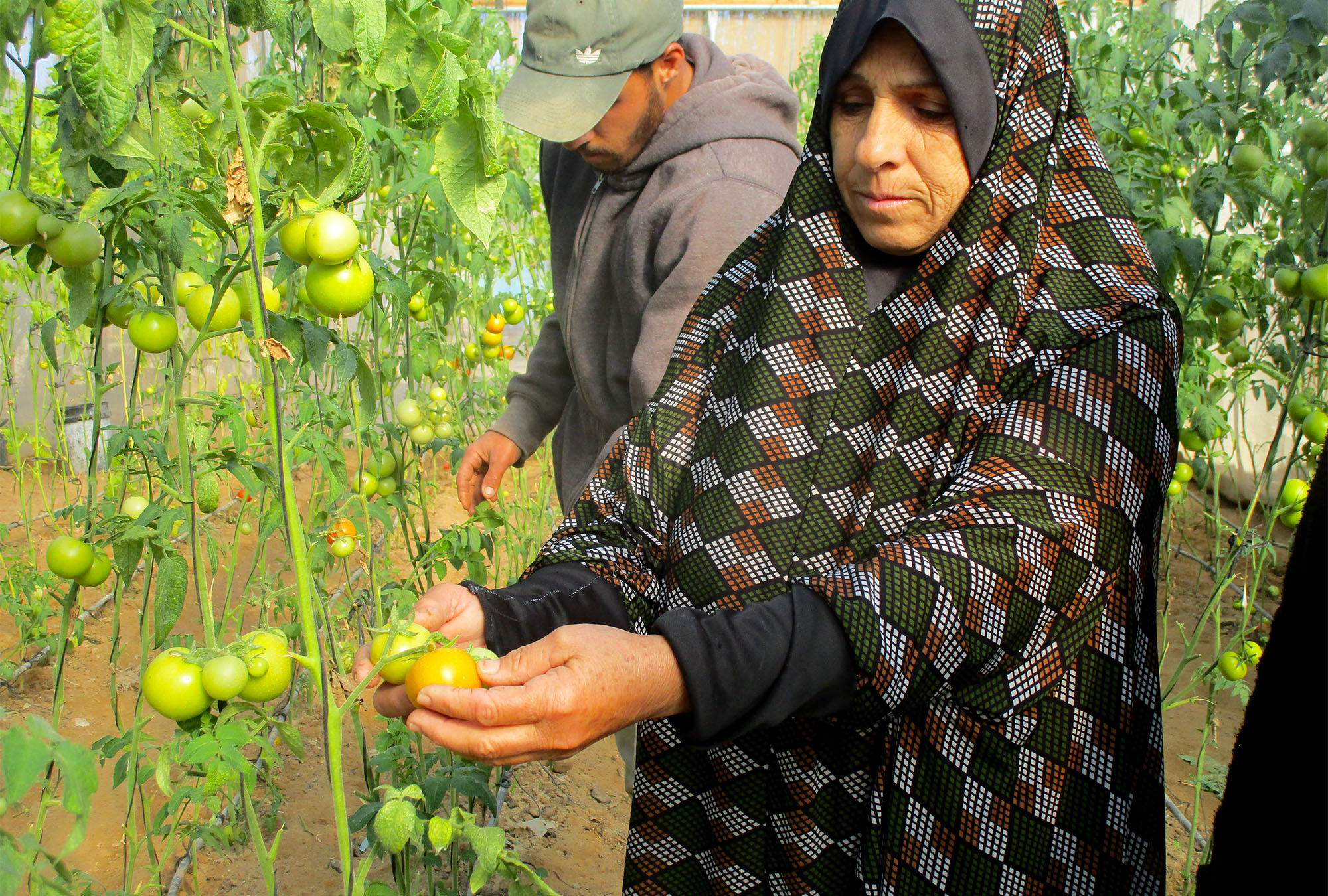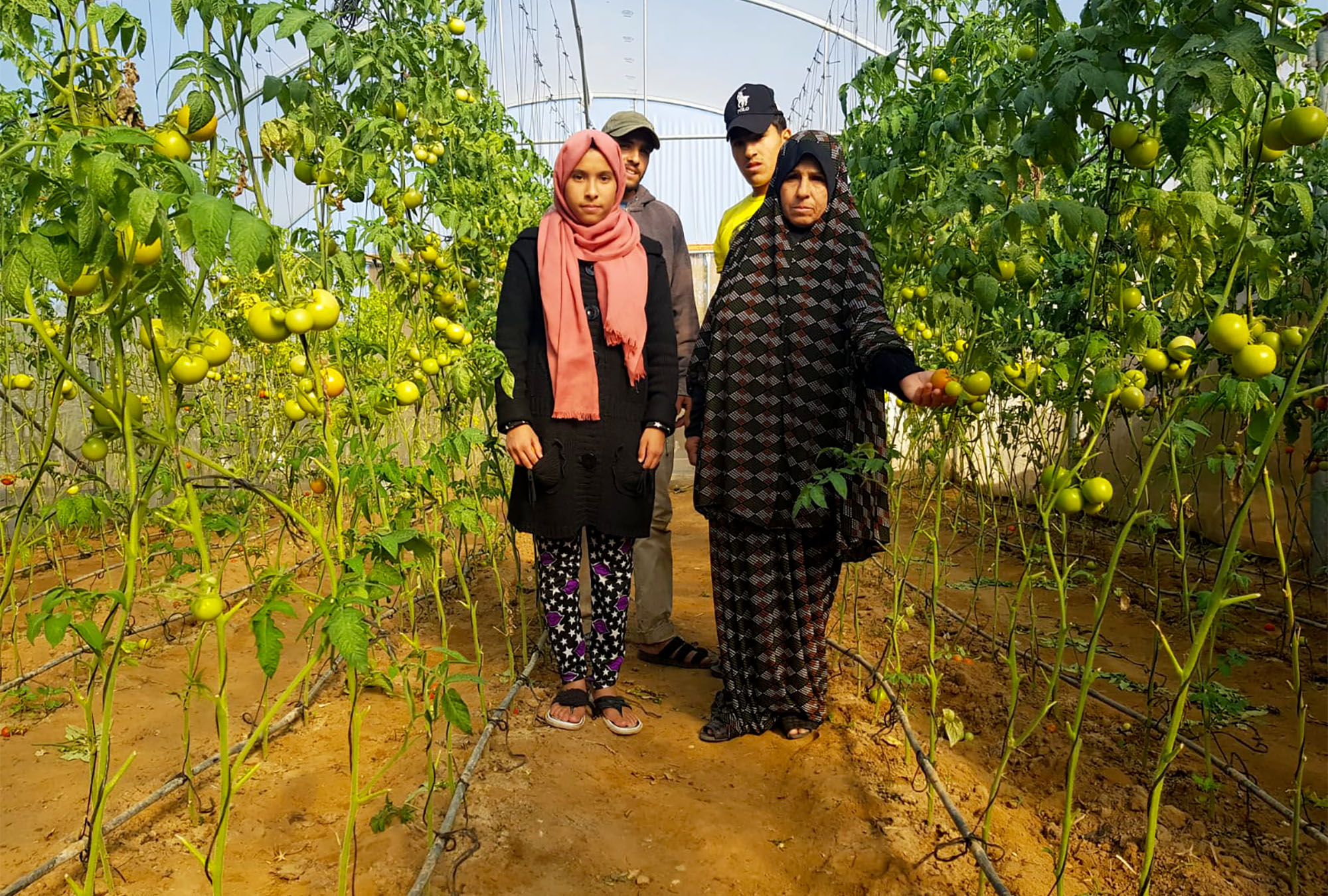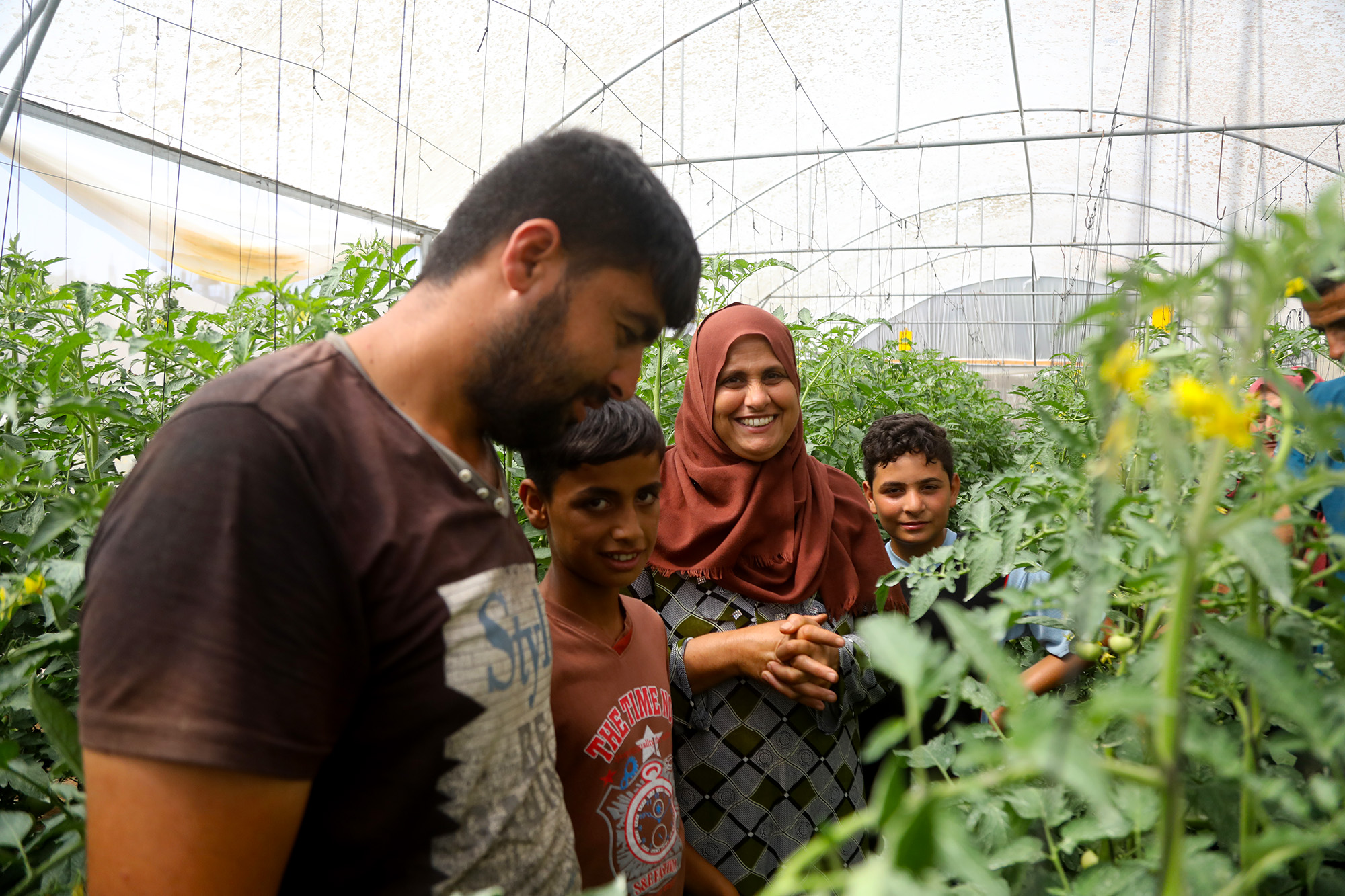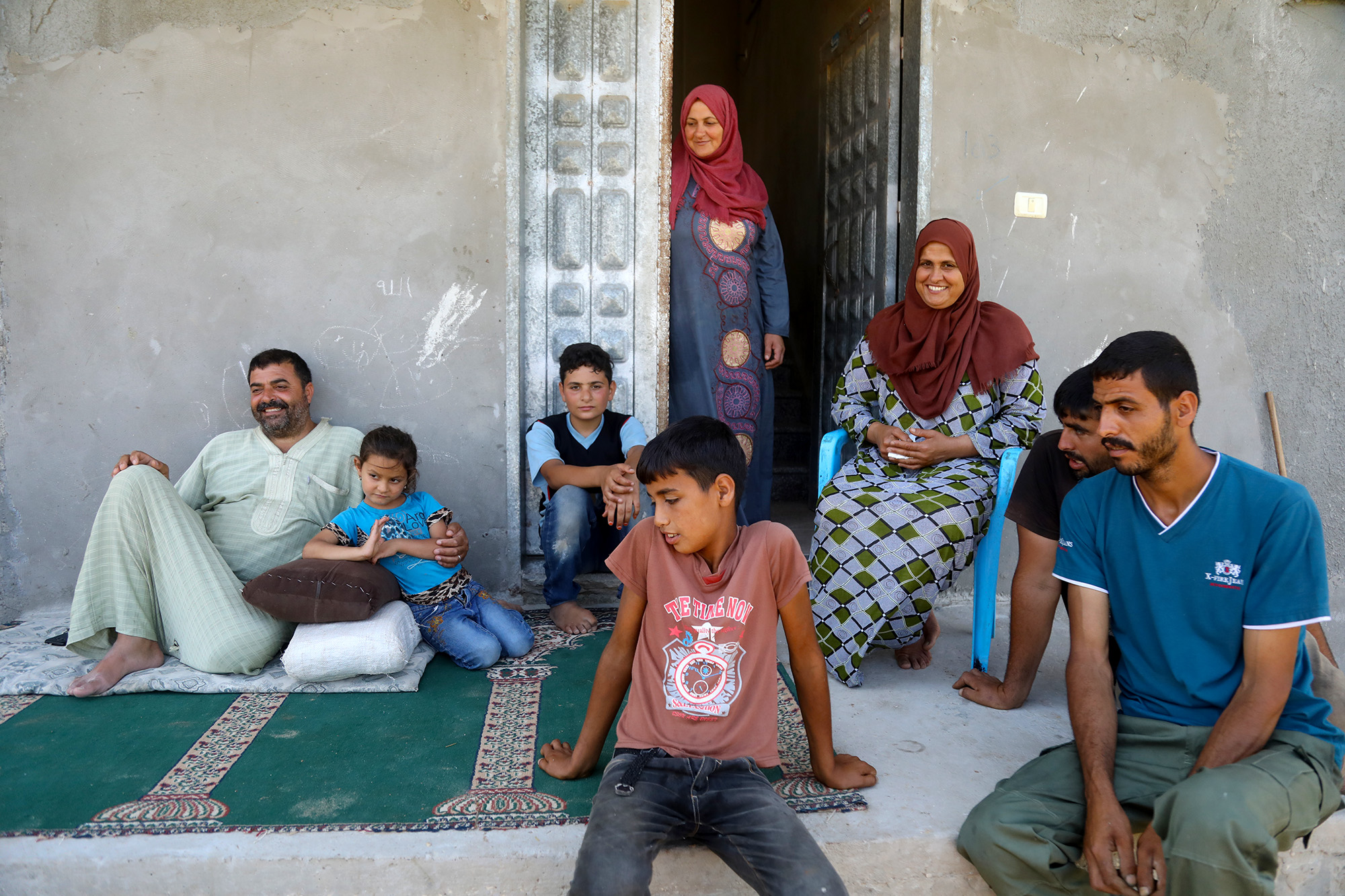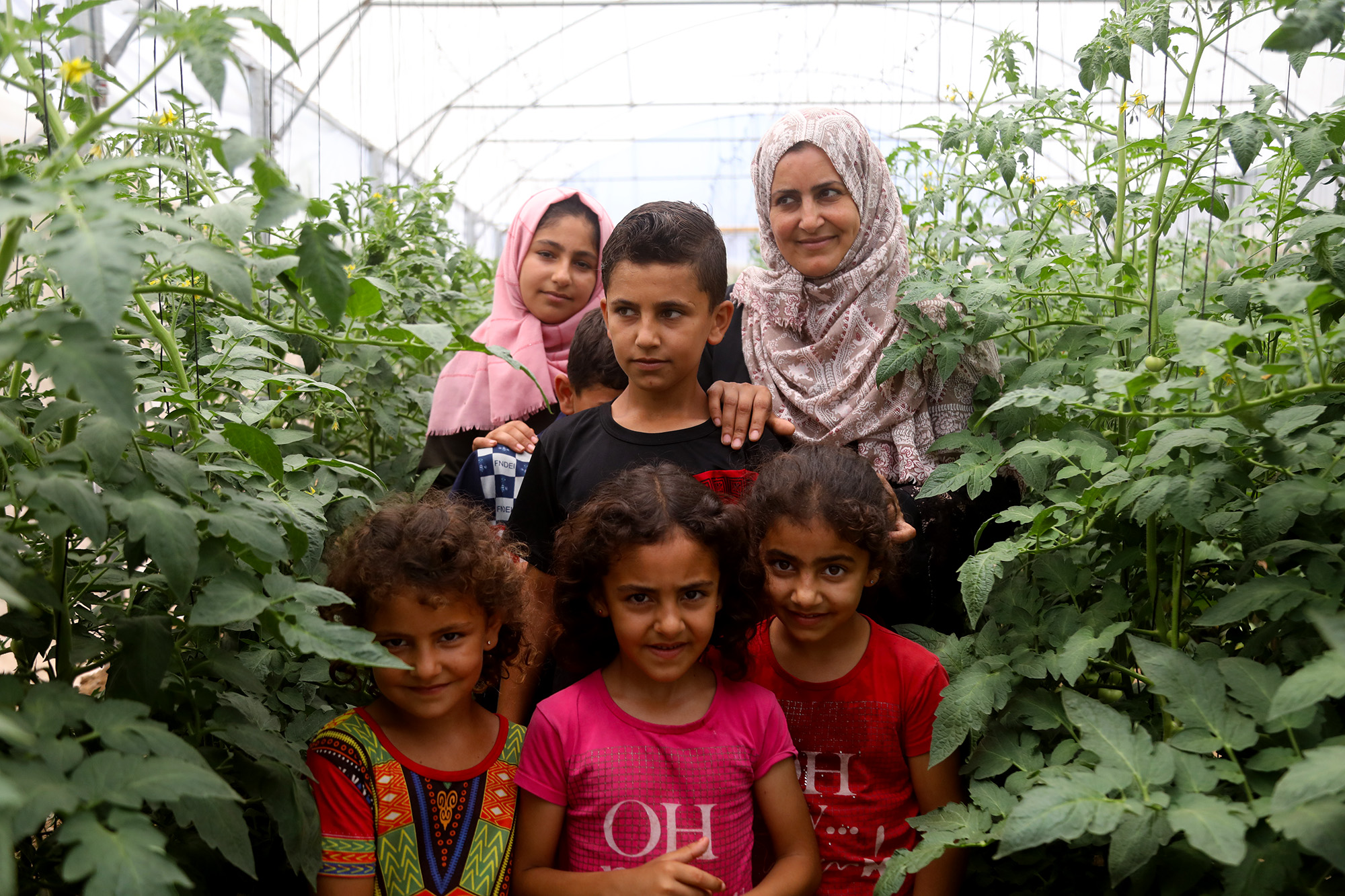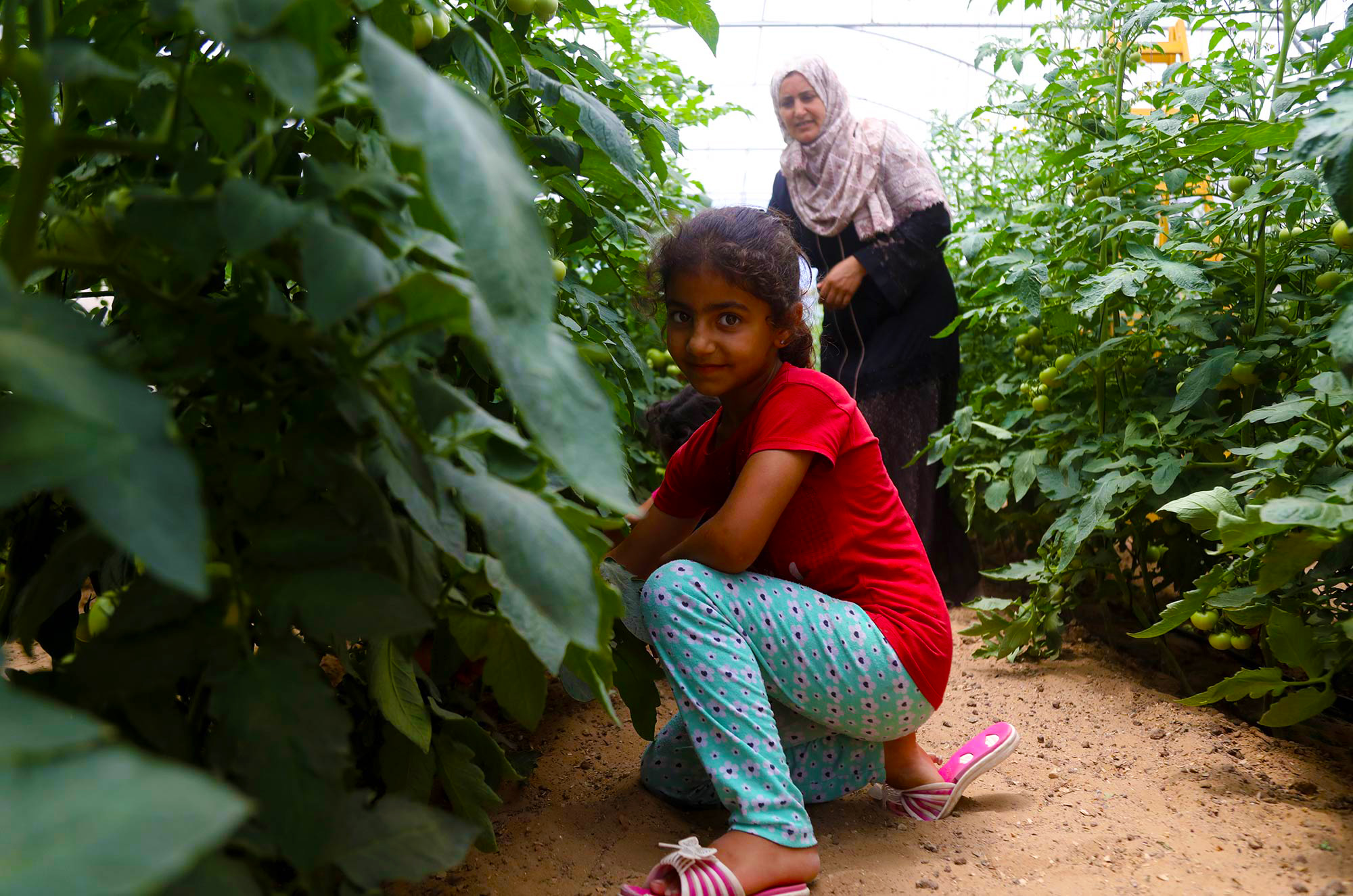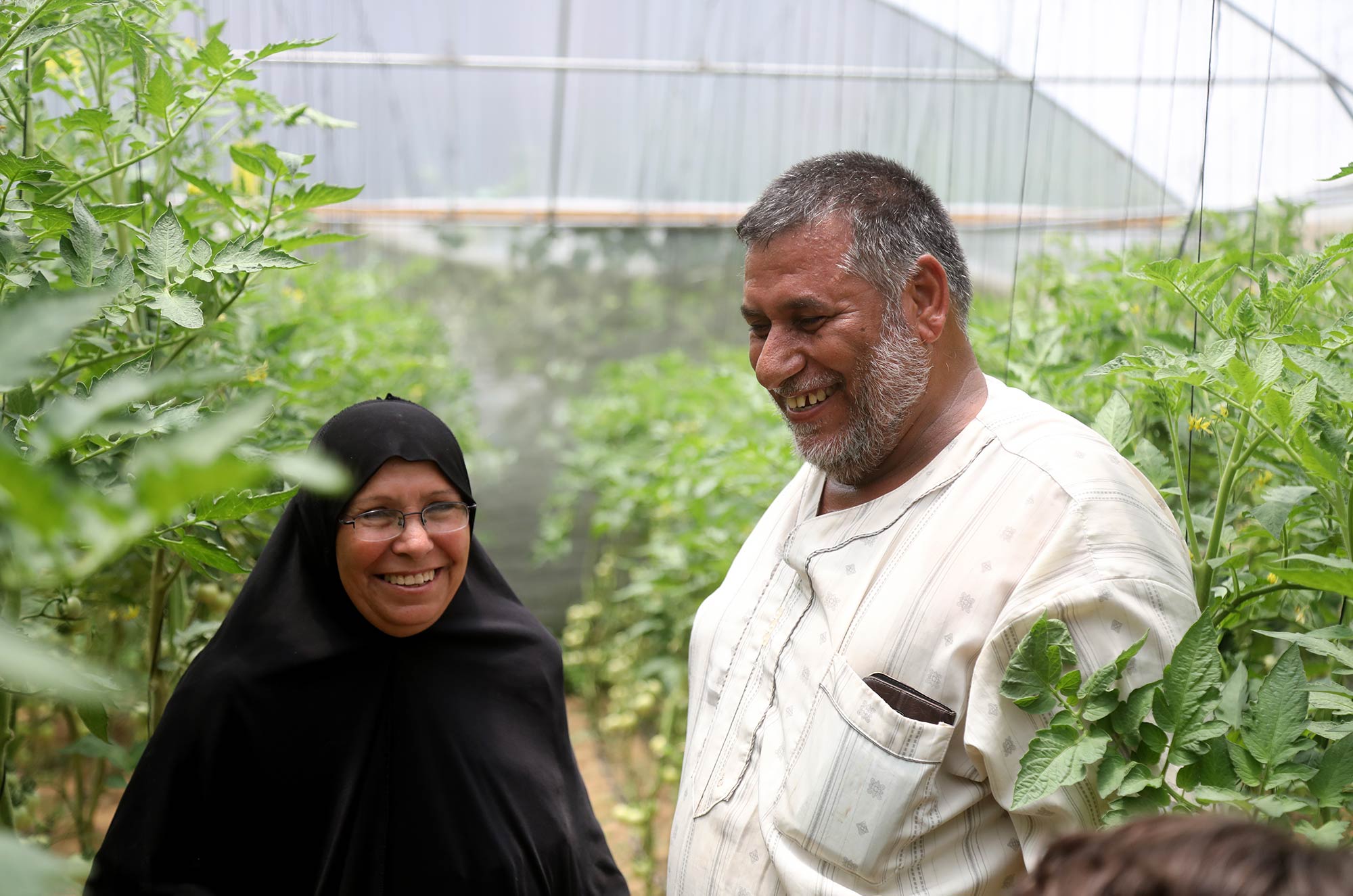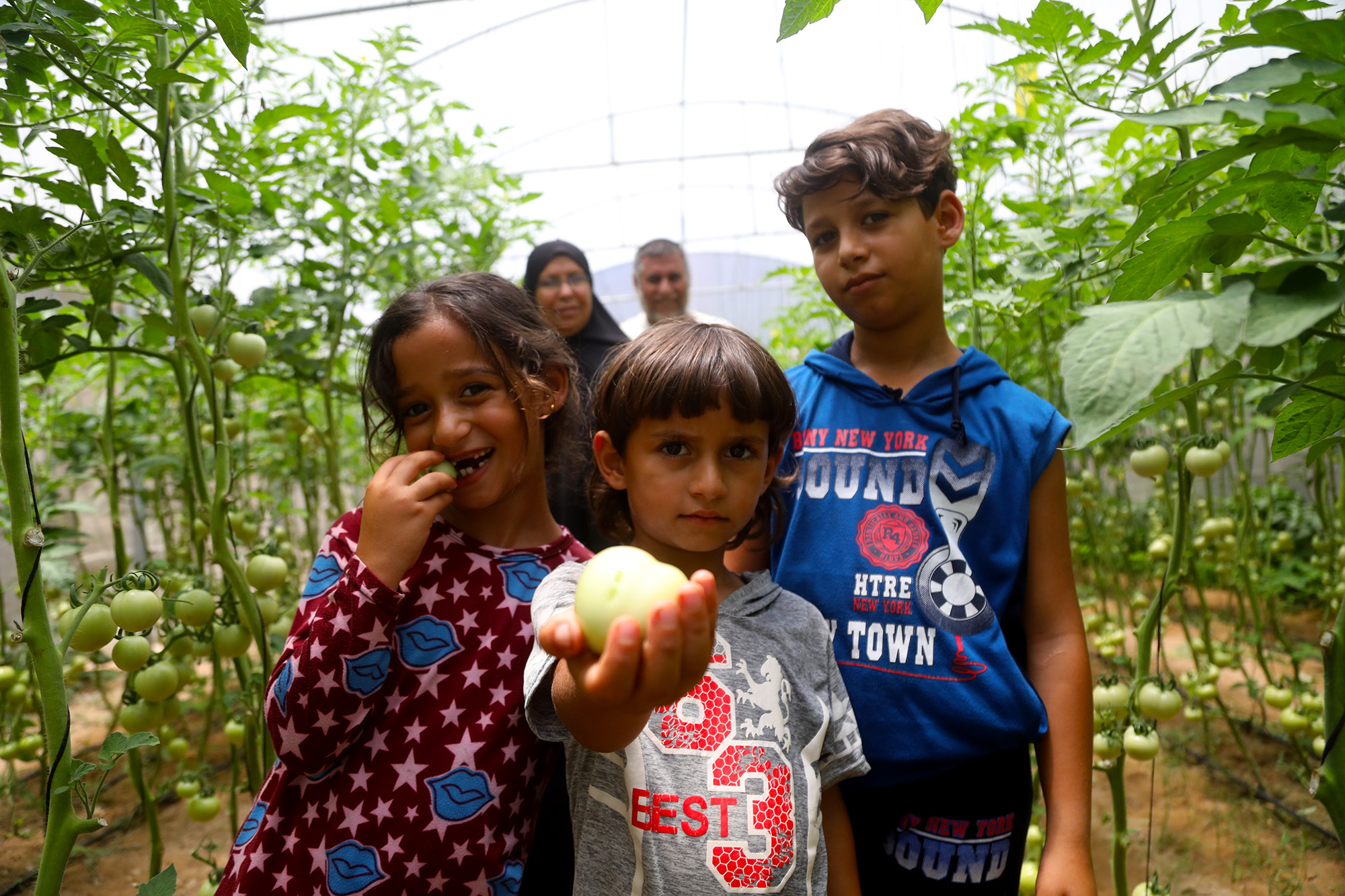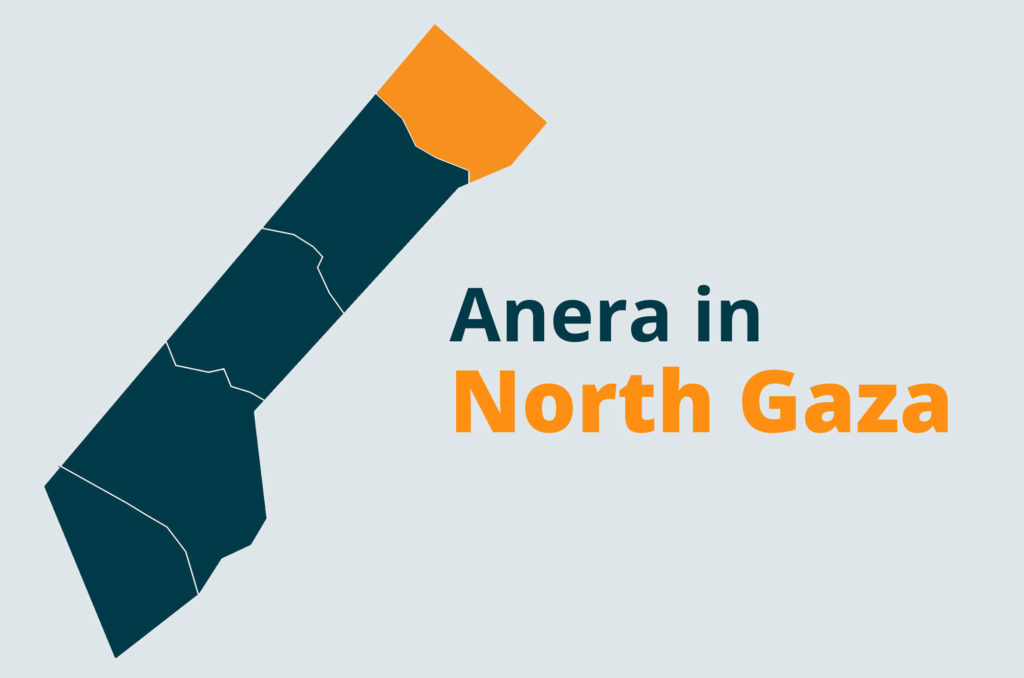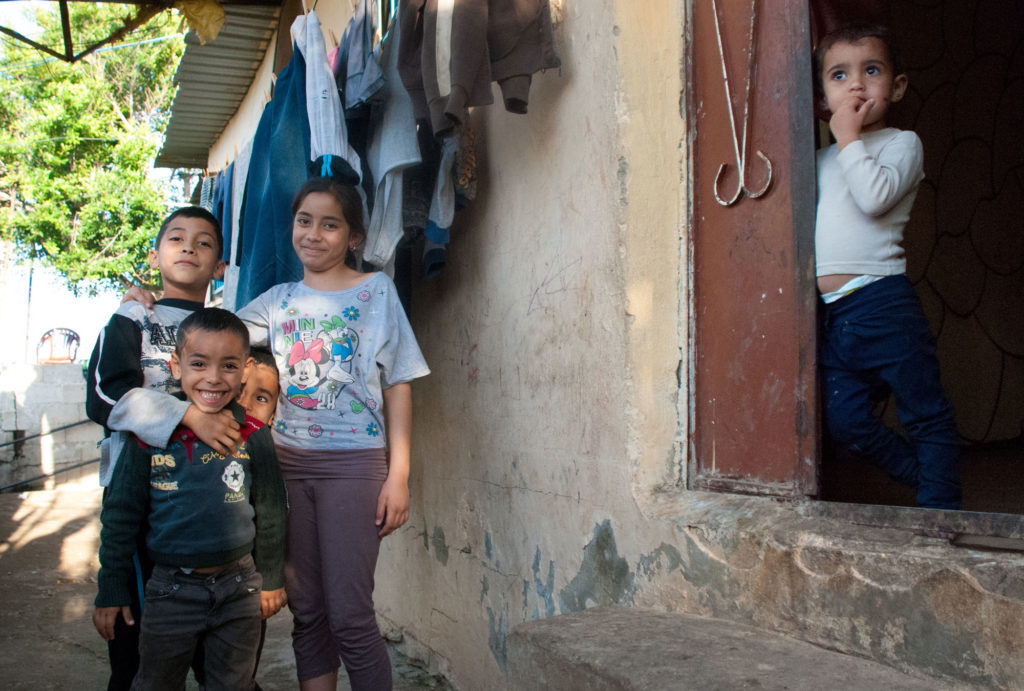Feb, 2020
One of the ways Anera has responded to the serious humanitarian crises facing Gaza is by funding and engineering the construction of greenhouses for families to become self-sufficient.
Growing and Selling Produce Helps Fund Education in Gaza
Saeed lives with his nine family members in a small house in the town of Zawayda, in Deir Al Balah Governorate, Gaza. He works hard to try to ensure his children will have a decent life.
"It has been a challenge to pay for the tuition fees of my seven children. I have never stopped working, even as I get older," Saeed says. He does it because he sees it as the best way to open opportunities for their lives.
"Education is the key for a better future for my sons and daughters," Saeed says.
Circumstances were not always so difficult. He calls the era of his youth Gaza’s golden age. In better days, he used to own a sewing factory with his brother. The two worked as tailors. "My brother and I made clothes in our factory and sold them to local shops."
However, those days are long gone. Due to the blockade and crippled economy, they eventually had to sell the factory.
Since then, Saeed continued making clothing at home using two small machines. But the income this work provided wasn't enough to cover his family's needs.
Fortunately, Saeed also had some experience with agriculture.
"When I was young, my parents, who were farmers, taught me how to grow crops. I used to spend my free time growing apple, palm and olive trees on our small plot of land," he says.
So Anera built a greenhouse for his family. Since Saeed started growing tomato plants in his greenhouse, he has raised three successful harvests. He finds the work congenial. "It’s fun to spend my days in the greenhouse, taking care of my plants and watching them grow," he says.
The greenhouse harvests have helped Saeed's family cover a significant part of his children’s tuition fees.
Now Saeed looks forward to expanding his greenhouse and raising more crops to sell.
“I'm getting older but I don't like to stay at home doing nothing. The greenhouse is my way to forget my concerns and keep working," he says.
Gaza Greenhouse Helps Nada Start Her Days Right
It’s afternoon in Zawayda, in the middle area of Gaza. Nada is preparing lunch for her family. All 10 family members live together in the small house they share.
She has just finished working in the greenhouse for the day. “Now I can go back to my regular housekeeping,” Nada says, ever busy.
Every day Nada goes to bed early so she can wake up full of energy to tend to the tomatoes in her greenhouse. She finds that her morning routine working in the greenhouse helps reduce her stress. “It’s a beautiful way to start your day,” she says.
Before Anera built the greenhouse, Nada could barely make ends meet. The family was sometimes forced to rely on donations from charitable associations.
“Ever since my husband developed liver disease, I have been in charge of finding ways to make our finances work,” she says.
From Charity to Sustainability
In the past, Nada’s eldest son, Ahmed, has worked for farmers to help his mom scrape together enough money for the family.
“I worked with farmers on their lands growing different kinds of vegetables so I could get experience,” Ahmed says.
Now he helps his mother with their tomato crops. “Ahmed and I have been working together in the greenhouse, growing big crops of tomatoes and molokhia,” Nada adds, referring to the popular Levantine vegetable.
Ever since her first tomato harvest, the greenhouse has made a huge difference in Nada’s life.
“I stopped waiting for charity. I have my own income now from selling tomatoes,” Nada says with pride.
Their earnings are sufficient to cover their daily needs, supplies for their greenhouse, and part of the tuition fees for her daughters in college. And Nada always shares some of her harvest with her relatives and neighbors.
After her first tomato harvest, Nada planted molokhia which also brought in a good price. She plans to continue planting both crops while experimenting with additional plants in the future. “I’m looking forward to preparing [the greenhouse] to plant more crops.”
For Nada, farming is not only a practical way to provide for her family, but a way of connecting with her past. Working in the greenhouse conjures treasured memories of her childhood and her father.
“My father was a farmer. I was still quite young when he taught me how to plant different plants in our small plot of land. These lessons have never left me,” she says.
For The Al Adham Family, Their Greenhouse Is A Lifeline in Gaza
In a small two-bedroom house in Beit Lahia, Gaza, Fayrooz, the owner of an Anera-built greenhouse, sits on the kitchen floor surrounded by her daughters. They are preparing zucchini for making Mahshi — a Middle Eastern stuffed zucchini dish. "Every day when I finish my work in the greenhouse, my daughters and I gather to make lunch," Fayrooz says.
Naser, Fayrooz's husband, used to work at local farms planting strawberries, but three years ago he was injured and had to stop working in order to recover. He also was recently diagnosed with diabetes. So Fayrooz has taken up farming in their own Anera-built greenhouse to support their family with fresh food and the badly needed income that comes from selling the produce. "Seeing the tomato plants grow makes me happy. They're like my children growing up every day in front of my eyes," Fayrooz says.
Fayrooz intends to improve her faming skills through working in the greenhouse. "Today I start planting tomatoes. Tomorrow I will have more to grow!"
Sanaa and Rajab Support their Children and Gaza Community
On a sunny summer day in Gaza, Sanaa, the owner of an Anera-built greenhouse, takes a break after finishing her work tending to the plants. "Nothing is better than having your own project to work on and seeing great results," she says while resting on a mattress on the ground, clutching her five-month-old baby girl.
Sanaa lives in Beit Lahia in a small two-bedroom house with her husband, Rajab, and their eight children. Rajab used to sell dairy-free milk that Sanaa made at home. However, the income didn’t cover the needs of their eight children.
Since Anera finished constructing a greenhouse on their land, the whole family has pitched in to weed and water the tomato plants.
This greenhouse is a source of hope to Sanaa and her family. All of them look forward to harvesting the first crop. When Bisan, Sanaa's little daughter, sees the first ripe tomatoes appearing in the greenhouse, she runs to tell her mom, asking, “Now can you buy me the toy I saw in the market last week?”
Sanaa brings passion and commitment to her work in the greenhouse. She is always thinking about ways to improve their crops. "I believe the greenhouse will help me provide a decent life for my children," she says.
Although the greenhouse provides a boost for this family, many of their neighbors in Beit Lahia are also in need of income. Because of this, Sanaa decided to distribute the first harvest among her neighbors. “I feel their suffering and I wish I could do more to help them," she says.
Naima Looks Forward to Her First Harvest in Gaza
Naima, 60, is another Beit Lahia, Gaza participant in Anera’s greenhouse program. She used to spend a lot of time with her grandsons growing flowers, which were a source of enjoyment and income for the family. However, the flowers were not enough to make ends meet.
The new greenhouse from Anera will help the family considerably. “[My husband] Reyad and my daughters work devotedly in the greenhouse, planting and watering tomatoes. I wish I could help them,” Naima says. Eight years ago, Naima was diagnosed with breast cancer. Her health has been progressively deteriorating and she can no longer work.
Naima’s family has incurred a lot of debt as a result of the years of medical treatment and the many surgeries she has undergone. They anticipate income from selling produce from the greenhouse will help them recover financially. “We’re counting the days till our first harvest,” she says.
The family believes that the greenhouse will also help Naima recover her health and spiritual vitality. “Doctors told me I have to care about what I eat, and nothing can beat eating what you plant with your own hands and witness growing naturally without chemicals,” she explains.
“Every morning when I wake up, I go check on the tomato plants in the greenhouse. Watching them grow heals my pain.”
Anera’s construction of these greenhouses was made possible by the generous support of the Zakat Foundation and an anonymous donor.

